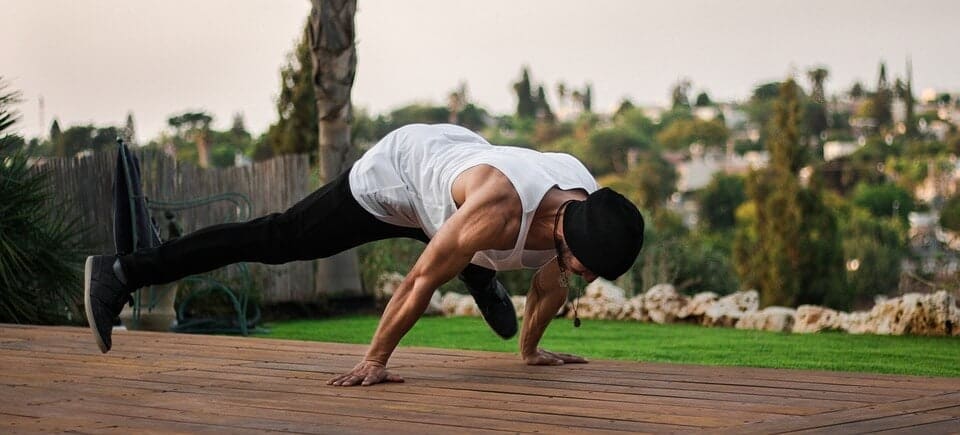In honor of World Suicide Prevention Day, September 10, 2018 and R U OK Day, September 13, 2018, Dr Dain Heer is sharing his personal journey of how self-acceptance saved his life.
I had a seemingly perfect life when I decided to end it all. Years later, I am determined to save lives through one simple thought – the pursuit of perfection can kill you; awareness of your own greatness can heal your life.
Seventeen years ago, I felt so depressed and hopeless I set a date for my suicide. I gave the universe six months, or I was going to kill myself. I had two chiropractic practices, money, a wonderful girlfriend – I had everything I thought would constitute a perfect life. But, inside, I was dying.
Today, I travel the world, sharing my personal story and experiences with abuse, depression and near-suicide to assure others they have everything to live for.
The World Health Organization estimates more than 800,000 people take their own lives each year and suicide remains the second leading cause of death among 15-29 year old’s.
I believe one major contributor to a global increase in suicide, is society’s fictional ideal of perfection. We place too much emphasis on being perfect, and we hold expectations and other points of view about how life – and we – should be. Then, when those expectations aren’t met, we believe it is because we have failed – we make ourselves “bad” or “wrong.
In doing so, we are unable to see the greatness that we naturally are.
Many of the expectations we hold about life are not, actually, our own. They are points of view we have unconsciously adopted from others.
How many points of view or expectations about life have you absorbed from your father? Your mother? If you had no past and hadn’t been influenced by points of view, what would you like in your life right now? What would you create for yourself?
I believe there are many factors that undermine our natural sense of greatness which includes:
- Being highly aware and sensitive
We are unknowingly bombarded constantly by the thoughts and feelings of people around us. Much of what goes on in your head isn’t even yours, and highly sensitive people are particularly attuned to, and affected by, the emotions of others.
More sensitive people are like psychic sponges, so attuned to others that, at an unconscious level, it’s like they are absorbing and reacting to everyone in a hundred-mile radius!
World Suicide Prevention Day Tip: Surround yourself with happy people! Secondly, repeatedly ask yourself this simple question whenever you are feeling sad, angry or blue: “Who does this belong to?” If you feel lighter after asking this, and the emotion ‘lifts’ from you, you can be assured that you have just picked it up from someone else. Recognizing this allows you to stop trying to fix what was never belonged to you in the first place.
- Experiencing abuse
Many of those who suffer from depression have been abused physically, mentally or emotionally. People unconsciously believe that abuse wouldn’t happen to a good person, so by default, those of us who have been abused have decided they must be ‘bad’ or ‘wrong’ to create this. Then we perpetuate this belief into the future by making it a justification for why we can’t choose or create goodness in our lives.
World Suicide Prevention Day Tip: Learn to see yourself from a different perspective, such as, “I have been confronted with the worst of this reality and I’m still here and I’m still searching for something greater.” Many abused people become the kindest and most caring people in the world, as their way of going beyond the abuse. Remember, you are different. You are greater than anything that has been a part of your life. You are a gift to this world.
- Constantly seeking answers or conclusions
Constantly try to make sense of (or find answers to) life entraps you in a cycle of judgement, blame and disappointment. My solution? Ask questions. A question always empowers. An answer always dis-empowers. One of the problems with depression and unhappiness is that we don’t see any different possibility. When you ask a question, even a simple one, you open other doorways of possibility that didn’t seem to exist before.
World Suicide Prevention Day Tip: Ask yourself these questions every day: What can I be or do different today to move beyond this depression? How does it get any better than this? What else is possible here that I’ve never considered?
- Living a sedentary lifestyle
According to Heer, sedentary lifestyles are very, very stressful on our bodies and are actually quite unkind to them.
Your body is meant to move! That’s one of the reasons you have it. It loves to be mobile. It loves to run, jump, swim, play, walk, rock-climb, and be enjoyed for the gift of movement it can be.
World Suicide Prevention Day Tip: Ask your body each day: “Body, what movement would you like to do today?” And go do it! You don’t have to do it perfectly, or like a world class athlete. Make it easy. Do it for fun! For your body! Just do it.
And to anyone overwhelmed with the weight of expectation, judgement and despair: please know there is always hope. Never give up, never give in and never quit. You are far too valuable to the world!
 Dain Heer is an internationally renowned author, speaker and facilitator of consciousness and change who, for the past 17 years, has been inviting people to embrace their true greatness. His best-selling book, Being You, Changing the World is published in nine languages. Follow Dain.
Dain Heer is an internationally renowned author, speaker and facilitator of consciousness and change who, for the past 17 years, has been inviting people to embrace their true greatness. His best-selling book, Being You, Changing the World is published in nine languages. Follow Dain.




